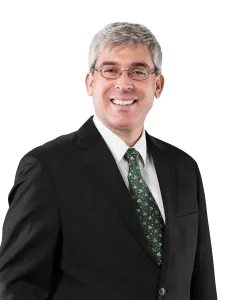Former CEO Indicted for Misleading Investors About COVID-19 Test Kits
Headlines that Matter for Companies and Executives in Regulated Industries
Former CEO Indicted for Misleading Investors About COVID-19 Test Kits
A federal grand jury in New Jersey indicted Marc Schessel—the former CEO of SCWorx Corp.—on two counts of securities fraud for allegedly misleading investors by announcing that the company had received a major contract for COVID-19 test kits.
According to the indictment, as part of a scheme to boost SCWorx’s stock price, Schessel made numerous public statements that SCWorx was buying and reselling at least 48 million test kits, allegedly despite knowing that such statements were false and/or misleading. These statements were allegedly made in and around April 2020, during the early days of the COVID-19 global pandemic, and in spite of learning new information that called into question the accuracy of information provided by SCWorx’s supposed supplier for such kits.
The SEC announced a parallel action on the same day against both Schessel and SCWorx. Without admitting or denying the allegations, SCWorx agreed to settle the SEC action and pay a $125,000 penalty, $471,000 in disgorgement, with prejudgment interest of approximately $32,760.
The DOJ press release is here, and the indictment is here. The SEC press release is here, and the complaint is here.
Former Perkins Coie Partner Acquitted of Lying to FBI
On Tuesday, May 31, a federal jury acquitted Michael Sussmann, a former partner at Perkins Coie LLP and lawyer for Hillary Clinton’s campaign, of charges that he lied to the FBI when he provided a tip about potential ties between then-candidate Donald Trump and a Russian bank. The prosecution was led by Special Counsel John Durham’s team, which has been investigating the origins of the FBI’s probe of possible ties between Trump’s 2016 presidential campaign and Russia since 2019.
Prosecutors alleged that Sussmann’s failure to disclose his ties to the Clinton campaign and a technology executive when he provided the tip to the FBI constituted a martially false statement. Specifically, prosecutors claimed that Sussmann told the then-FBI General Counsel that Sussmann was bringing forward the information solely on his own behalf, when he was actually representing both the Clinton Campaign and a technology executive, and that this lie was part of a broader effort to manipulate agency resources.
Sussmann’s defense team successfully argued that Sussmann went to the FBI solely to alert the agency that a story presenting serious national security concern was potentially going to be published on the allegation, that there were multiple conflicting statements from FBI officials over the years about Sussmann, and that FBI investigators knew of Sussmann’s history of representing Democratic clients, undercutting prosecutors’ claims that Sussmann’s alleged lie influenced the agency’s decision to investigate the claim.
Contacts
- Related Practices



